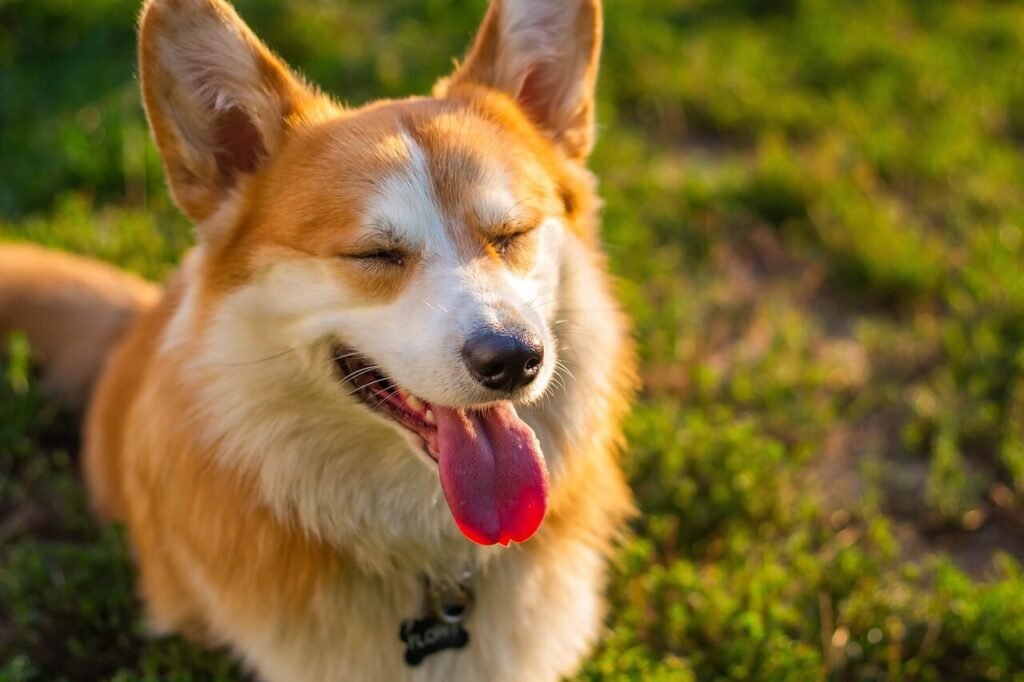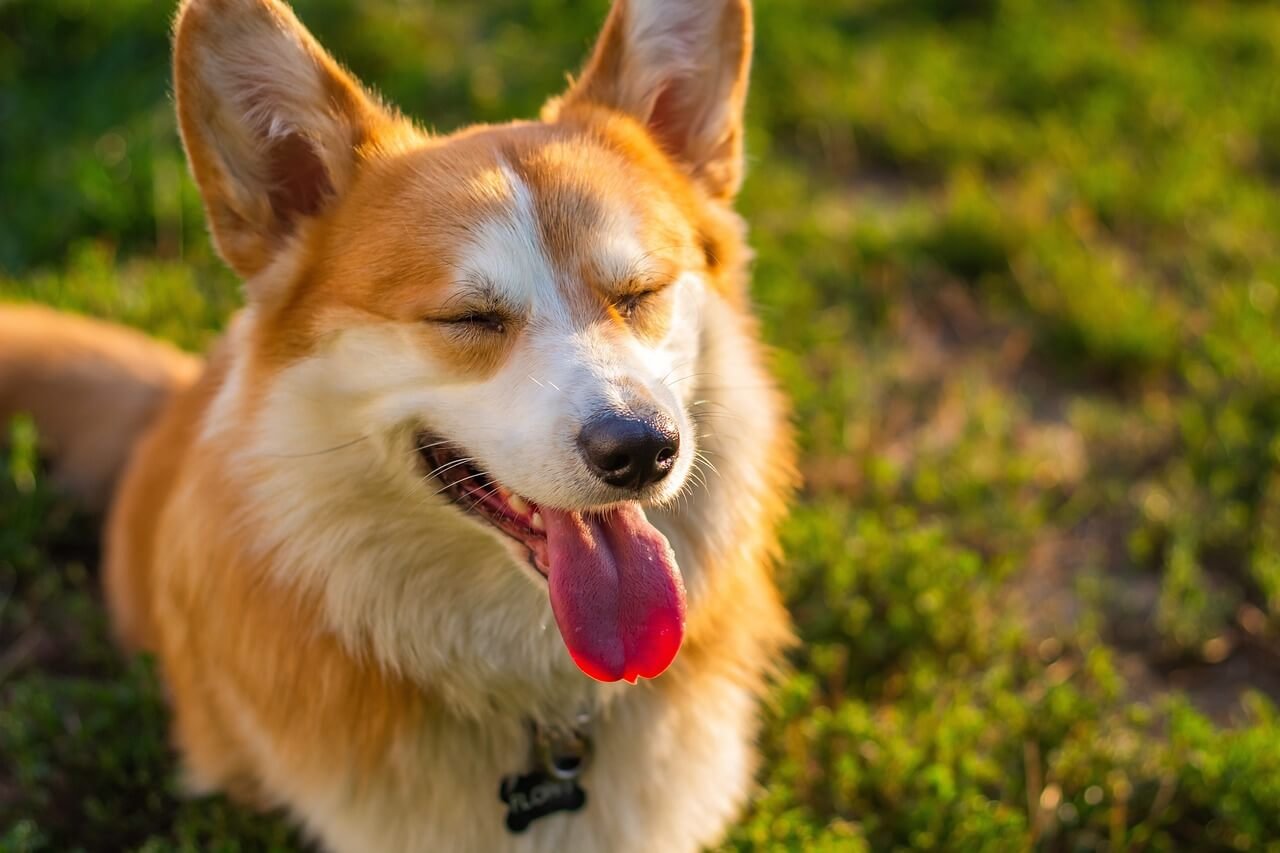Why Does My Dog Lick Their Paws at Night? Exploring the Reasons and Solutions
If you’ve ever noticed your dog licking their paws at night, you’re not alone. Many pet owners wonder why this behavior occurs and whether it’s something to be concerned about. While occasional paw licking is normal and can simply be a sign of self-grooming, excessive or persistent licking may indicate an underlying issue that needs attention. From allergies and skin irritations to anxiety or boredom, there are several potential reasons behind this behavior. In this blog post, we’ll delve into the causes of dog licking paws at night , how to identify the root problem, and practical steps to help your furry friend feel more comfortable. Let’s uncover what your dog might be trying to tell you!
Common Reasons Why Dogs Lick Their Paws at Night
Understanding why your dog licks their paws at night is the first step toward addressing the issue. Here are some common explanations for this behavior:
Allergies
Environmental allergens like pollen, dust mites, or food sensitivities can cause itchiness, leading dogs to lick their paws for relief.Dry or Irritated Skin
Dry skin, cracked pads, or exposure to harsh chemicals can make paws uncomfortable, prompting excessive licking.Parasites
Fleas, ticks, or mites can cause irritation, making your dog focus on their paws as they try to soothe the discomfort.Anxiety or Stress
Dogs often lick their paws as a calming mechanism when they’re feeling anxious, especially during quiet nighttime hours.Boredom or Habit
If your dog doesn’t have enough mental or physical stimulation during the day, they may develop licking as a repetitive habit.
Identifying the specific cause of your dog’s nighttime paw licking is crucial for finding the right solution. Observing their behavior and consulting your vet can help pinpoint the issue effectively.
Signs That Your Dog’s Paw Licking Is a Problem
While occasional paw licking is normal, certain signs indicate that your dog’s behavior may be problematic. Here’s what to look for:
Redness or Swelling
If your dog’s paws appear red, swollen, or irritated, it could signal an infection or allergic reaction.Hair Loss Around the Paws
Excessive licking can lead to hair loss or bald patches around the affected area.Licking Until Bleeding Occurs
Persistent licking that results in open sores or bleeding requires immediate attention.Changes in Behavior
If your dog seems restless, agitated, or unable to settle at night, it may be due to discomfort caused by paw licking.Foul Odor from Paws
A strong or unpleasant smell coming from your dog’s paws could indicate a bacterial or fungal infection.
These signs suggest that your dog’s paw licking may stem from an underlying health issue or emotional distress. Addressing the problem promptly can prevent further complications and improve your dog’s quality of life.
Check this guide 👉Why Does My Dog Lick Me Excessively at Night? Best 7 Tips!
Check this guide 👉Why Does My Dog Lick My Ears? Best 7 Behavior Tips!
Check this guide 👉Why Does My Dog Lick My Other Dogs Mouth? Best 7 Tips!

Possible Causes of Paw Licking | Solutions to Try |
|---|---|
Allergies (food or environmental) | Consult a vet for allergy testing and dietary changes. |
Dry or irritated skin | Apply paw balm or moisturizer and avoid harsh chemicals. |
Parasites (fleas, mites, etc.) | Use vet-recommended flea treatments and check for pests. |
Anxiety or stress | Provide calming aids like pheromone diffusers or soothing music. |
Boredom or lack of stimulation | Increase playtime, offer puzzle toys, or schedule evening walks. |
How to Stop Your Dog from Licking Their Paws at Night
Addressing your dog’s nighttime paw licking involves identifying the cause and implementing targeted strategies. Here are some effective ways to curb this behavior:
Provide Mental and Physical Stimulation
Engage your dog with interactive toys, training sessions, or long walks to tire them out before bedtime.Use Distraction Techniques
Offer chew toys, stuffed Kongs, or treat puzzles to redirect their focus away from licking.Apply Protective Measures
Use dog socks or Elizabethan collars temporarily to prevent access to their paws while they heal.Create a Calming Bedtime Routine
Establish a relaxing pre-sleep routine, such as gentle massage or brushing, to ease anxiety.Consult Your Veterinarian
If the behavior persists, seek professional advice to rule out medical conditions or explore medications for severe cases.
By combining these approaches, you can help your dog break the habit of excessive paw licking and ensure peaceful nights for both of you. Consistency and patience are key to success.
Preventive Measures to Reduce Paw Licking
Preventing your dog from developing a habit of licking their paws at night starts with proactive care. Here are some preventive measures to consider:
Regular Grooming
Keep your dog’s paws clean and trimmed to reduce irritation and prevent infections.Monitor Diet and Nutrition
Feed a balanced diet free of allergens and consult your vet about supplements like omega-3 fatty acids for skin health.Check for Environmental Triggers
Identify and minimize exposure to allergens like pollen, mold, or cleaning products that could irritate your dog’s skin.Schedule Routine Vet Check-Ups
Regular veterinary visits can catch potential issues early and keep your dog in optimal health.Provide Emotional Support
Spend quality time with your dog daily to reduce feelings of loneliness or stress that may contribute to licking.
Taking these preventive steps can help minimize the likelihood of your dog developing excessive paw-licking habits. Prevention is always better than cure when it comes to your pet’s well-being.
Natural Remedies to Soothe Your Dog’s Paws
If your dog’s paw licking is caused by minor irritations or dryness, natural remedies can provide relief and promote healing. Here are some safe and effective options to try:
Coconut Oil
Apply a small amount of organic coconut oil to your dog’s paws to moisturize dry skin and reduce irritation.Aloe Vera Gel
Use pure aloe vera gel (ensure it’s pet-safe) to soothe inflammation and speed up the healing process.Oatmeal Baths
Soak your dog’s paws in a warm oatmeal solution to relieve itching and calm irritated skin.Chamomile Tea Compress
Steep chamomile tea bags in warm water, let them cool, and use the liquid as a soothing compress for their paws.Apple Cider Vinegar Rinse
Dilute apple cider vinegar with water and gently wipe your dog’s paws to clean and disinfect minor irritations.
These natural remedies can help alleviate discomfort and reduce your dog’s urge to lick their paws. However, always consult your vet before trying new treatments, especially if the issue persists or worsens.
How to Identify Emotional Triggers for Paw Licking
Emotional factors like stress or anxiety can often lead to excessive paw licking. Identifying these triggers is essential for addressing the root cause effectively. Here are some common emotional triggers to consider:
Changes in Routine
Sudden changes in daily schedules, such as moving homes or altering feeding times, can unsettle your dog.Separation Anxiety
Dogs that feel anxious when left alone may resort to licking their paws as a coping mechanism.Loud Noises
Thunderstorms, fireworks, or construction sounds can cause stress, leading to nighttime licking behaviors.Lack of Social Interaction
Insufficient attention or playtime during the day can leave dogs feeling lonely and prone to self-soothing behaviors.Past Trauma
Dogs with a history of neglect or abuse may develop compulsive habits like paw licking as a response to unresolved trauma.
By recognizing these emotional triggers, you can take steps to comfort your dog and reduce their reliance on licking as a coping mechanism. Addressing their emotional needs is just as important as treating physical ailments.
Ways to Create a Relaxing Environment for Your Dog at Night
A calm and comfortable sleeping environment can help reduce nighttime paw licking caused by stress or boredom. Here are some tips to make bedtime more relaxing for your dog:
Use White Noise Machines
White noise or calming music can drown out sudden sounds that might startle or stress your dog.Provide a Cozy Bed
Invest in a soft, supportive bed that makes your dog feel secure and encourages restful sleep.Incorporate Calming Scents
Use pet-safe essential oils like lavender or chamomile in a diffuser to create a soothing atmosphere.Limit Screen Time Before Bed
Avoid stimulating activities like TV or energetic play shortly before bedtime to help your dog wind down.Stick to a Consistent Routine
Maintain a predictable bedtime routine, including a final bathroom break and a few minutes of quiet bonding time.
Creating a peaceful nighttime environment can significantly reduce your dog’s anxiety and minimize behaviors like paw licking. A relaxed dog is more likely to sleep soundly through the night, leaving both of you well-rested and happy.
FAQ
Is it normal for dogs to lick their paws at night?
Occasional paw licking is normal, but excessive or persistent licking may indicate an underlying issue.
Can allergies cause my dog to lick their paws?
Yes, allergies to food, pollen, or other environmental factors can lead to itchiness and paw licking.
How do I know if my dog’s paw licking is due to anxiety?
Signs of anxiety-related licking include restlessness, pacing, or licking primarily during quiet times like nighttime.
Should I stop my dog from licking their paws entirely?
Not necessarily—occasional licking is part of grooming. However, excessive licking should be addressed to prevent injury or infection.
What should I do if my dog’s paws are red and swollen?
Consult your veterinarian immediately, as redness and swelling could indicate an infection, allergy, or other medical condition.
Helping Your Dog Find Comfort and Peace
Understanding why your dog licks their paws at night empowers you to take meaningful steps toward resolving the issue. Whether the cause is physical discomfort, emotional distress, or simple boredom, addressing the root problem can significantly improve your dog’s well-being. By combining preventive measures, behavioral interventions, and professional guidance when needed, you can create a healthier, happier environment for your furry companion. Remember, your dog relies on you to notice the subtle signs of discomfort and provide the care they need. With patience and dedication, you can help them overcome this habit and enjoy restful nights together.
Do Cats Have Taste Buds? Best 7 Expert Tips! – Discover how cats experience flavors and why their taste is so unique.
Do Dogs Have Taste Buds? Best 7 Expert Tips! – Discover how dogs experience taste, their preferences, and what it means for their diet and health.
Can Cats Taste Sweet? Best 7 Expert Tips! – Discover why cats can’t taste sweetness, how it affects their diet, and tips to keep them healthy and happy.
Can Dogs Taste Sweet? Best 7 Expert Tips! – Discover how dogs perceive sweetness, which foods are safe, and tips to manage their sweet cravings responsibly.





